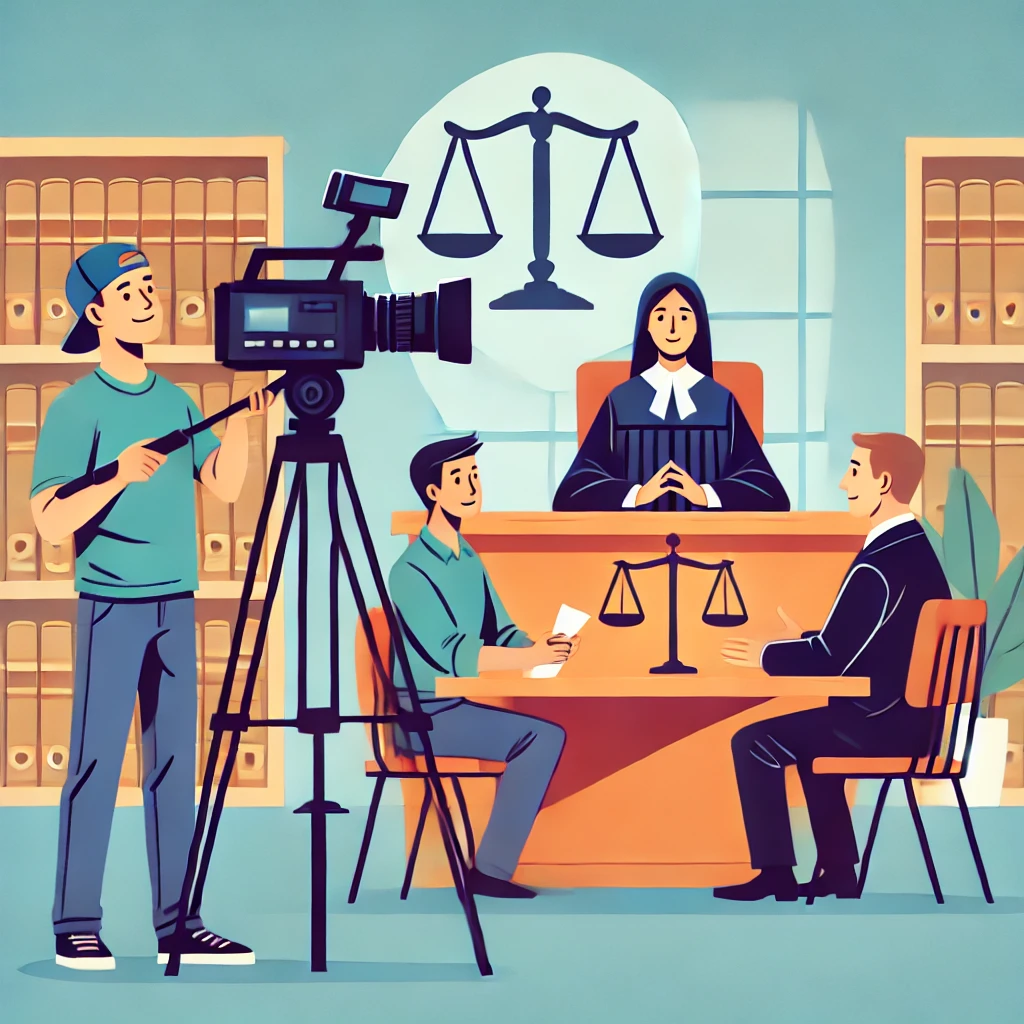Vital Elements of Legal Videography for Reliable Documents
Legal videography plays a crucial function in the documentation of crucial occasions within the justice system, where accuracy and quality are paramount. As we check out these necessary components, it comes to be obvious that the subtleties of this practice can have far-reaching ramifications for legal end results.
Value of Legal Videography
Lawful videography plays a crucial function in the judicial procedure by giving a trustworthy visual document of testimonies, depositions, and various other considerable events. This visual documents offers several essential features, most notably enhancing the reputation of proof provided in court. Unlike created records, video recordings catch non-verbal signs, such as body language and psychological reactions, which can significantly affect a jury's understanding of a witness's reliability and reliability.
In addition, legal videography help in maintaining the honesty of complicated cases, making sure that subtleties are properly represented. This comes to be particularly important in instances including expert statement, where visual help can illuminate elaborate principles that might be testing to communicate through text alone.
In addition, using videography can streamline trial process. By enabling jurors to view recordings as opposed to counting exclusively on real-time testament, the process can come to be much more effective and much less susceptible to misconception.
Technical Requirements
To successfully capture top quality video in a lawful setup, specific technological needs should be fulfilled. First and foremost, the option of video camera is vital; it must have high-definition capacities, ideally 1080p or greater, to make certain clearness in aesthetic documents. In addition, the cam should have a dependable zoom function to capture information from different distances without jeopardizing image top quality.
Lights is another vital facet. Natural light is preferred, however supplemental lights may be essential to remove shadows and make sure all individuals are effectively brightened (Legal Videography). Soft, diffused lights can help create an expert appearance while avoiding extreme contrasts

Last but not least, stable recording devices is essential. A tripod or other stabilization gear must be used to prevent unsteady footage, which could diminish the professionalism and trust of the paperwork. Satisfying these technological demands will substantially boost the high quality and performance of lawful videography.
Conformity and Legal Requirements
In the world of lawful videography, adherence to conformity and lawful requirements is critical to make certain the stability and admissibility of documented products in court process. Legal videographers have to be fluent in the appropriate regulations and policies regulating the documents of proof. This consists of comprehending the regulations of proof, which dictate how video recordings can be used in court, as well as personal privacy laws use this link that protect the civil liberties of individuals recorded on video clip.
Furthermore, videographers should obtain proper approval from all parties entailed in the recording procedure. This not just fosters transparency but additionally safeguards versus possible legal consequences. Compliance with state-specific regulations is similarly vital, as the lawful landscape differs dramatically throughout territories.
In addition, keeping high standards of technological quality is vital, as poor sound or visual quality can lead to challenges concerning the trustworthiness of the footage. Videographers should likewise keep meticulous documents of the chain of custodianship for all video clip products, ensuring that they can show the credibility and integrity of the recordings if questioned in court. Basically, compliance with legal requirements creates the structure of effective and reliable lawful videography.
Best Practices for Videographers
Sticking to conformity and lawful standards establishes a strong structure for efficient lawful videography, but best methods further boost the quality and integrity of documented products. Firstly, videographers need to make use of top notch tools, consisting of cameras with sufficient resolution and sound catching devices that reduce history noise. This makes sure quality in both visual and acoustic components, which is vital for lawful paperwork.
Secondly, appropriate lighting is important to stay clear of darkness or overexposure, therefore maintaining the honesty of the footage. Videographers ought to scout the location beforehand to figure out ideal illumination conditions, changing as necessary.
In addition, mindful framework and composition are vital. Topics need this content to be centered within the frame, and any relevant materials or exhibits need to be plainly noticeable. This not just aids in clearness however also helps in communicating context during legal procedures.
Additionally, keeping a neutral disposition and staying clear of individual predispositions while recording boosts the professionalism of the videographer. Attention to detail in editing, including smooth shifts and clear labeling of documents, makes certain that the last item is not only sleek however additionally simple to navigate for legal groups. Following these best practices inevitably supports the goals of lawful documents.
Enhancing Evidentiary Value
Enhancing the evidentiary value of lawful videography calls for a strategic approach that prioritizes both credibility and quality. Lawful videographers should make sure that the video clip paperwork precisely reflects the statements, events, or conditions being tape-recorded. This begins with the option of high-grade devices that records clear audio and aesthetic aspects, decreasing distortion or interference that could weaken integrity.
Additionally, thorough attention to detail is extremely important. Videographers need to develop a stable cam placement, use appropriate illumination, and stay clear of any type of unnecessary edits that might be perceived as modifying the initial content. Maintaining a neutral point of view during recording helps protect the authenticity of the proof.
Additionally, get redirected here appropriate paperwork of the recording procedure-- including date, time, area, and any kind of appropriate contextual information-- can considerably reinforce the evidentiary weight of the video. This metadata acts as an essential recommendation factor for credibility.

Final Thought

Lawful videography plays an essential role in the documents of essential events within the justice system, where precision and clarity are vital.In the realm of lawful videography, adherence to compliance and legal requirements is extremely important to make sure the honesty and admissibility of recorded products in court process. Legal Videography. In significance, compliance with lawful criteria develops the structure of effective and trustworthy lawful videography
Adhering to compliance and legal requirements develops a solid structure for reliable legal videography, but best techniques even more enhance the quality and reliability of taped products.In final thought, the value of lawful videography lies in its ability to supply clear, trusted documentation for lawful proceedings.